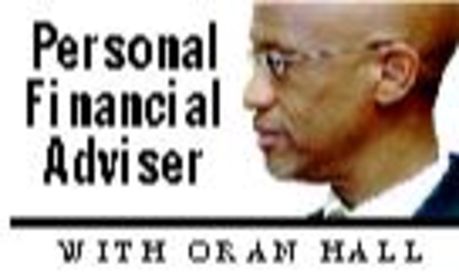
Oran A. Hall, Contributor
QUESTION: I would like to extricate myself from a huge credit-card debt that has been plaguing me for some years now. It seems as if I cannot get rid of this debt and need your expert advice.
I have a credit card with a limit of $140,000. The reason I acquired this card was to help me alleviate some of my expenses while at university - bus fare, lunch money, etc.
The minimum payment is ridiculously high. Could I make an arrangement with the bank for them to cease sending me a new credit card when the old one expires? Please give me some good advice on relieving this huge debt burden.
- Del
PFA: Credit-card debt is pretty expensive and should be treated as the short-term debt it is. Nonetheless, with some discipline and sacrifice, you can bring it under control.
One lesson you should learn for the future is that it is not the best way to finance your living expenses at school, or in any other situation.
In fact, you should remember that it is important to know where the funds will come from to service this and other types of debt before incurring them.
Recognise, too, that it is not prudent to manage credit-card debt by just making the minimum payment.
Considering its cost, this approach only serves to put you into a sinkhole of debt. As a spender, use the credit card for convenience.
It is important for you to establish a good credit rating and having a credit-card account can help you to establish one because it is usually easier to get such a facility than other forms of credit.
It is an unsecured loan, which is why it is so expensive.
Let us now look at the other issues you have raised. The issuers of credit cards require that their customers make a minimum monthly payment to keep their accounts active. In your case, it is five percent of the amount due.
But there are situations in which the required payment may be higher.
If, for example, you exceed your limit, as the companies sometimes allow their customers to do, that excess is added to the five per cent to determine the minimum payment required.
Additionally, any delinquent amount due is added to the five per cent to determine the minimum payment.
Let us say that you were required to make a minimum payment of $5,000, but paid only $3,000.
The delinquent amount of $2,000 would be added to the five per cent of the next amount due to arrive at the minimum payment required for the next payment.
Your minimum payment could be "ridiculously high" because you have been in either or both of these situations in the past, or you may be in that situation now.
Apart from the delinquent amount I just referred to, your account could be deemed delinquent if you have not made required payments for a period ranging from 60 to 90 days. In this case, no activity would be allowed on the account until the delinquency has been corrected.
Issuers of credit cards generally send new cards to their customers automatically as the expiration date of the old card approaches. To stop this happening, you would need to write to your branch advising that you wish to close your account and, therefore, not be issued with a new card. But it does not stop there - all balances would have to be cleared for this to take effect.
You may want to visit your branch to discuss how to manage your situation. The representative of the bank may help you fashion a suitable payment plan, or an arrangement may be made to convert the credit-card debt to a regular loan.
Your creditor will want to recover the money owed, so if you fail to pay your debt, it may resort to other measures, such as engaging the services of a collection agency or an attorney-at-law, depending on the size of the debt.
It seems that you have completed your university course and I hope you are working. Make settling your debt your priority, even if it means putting yourself through a period of austerity, and do not use the card. In the long run, that is the cheapest and best way.
Oran A. Hall is principal author of 'The Handbook of Personal Financial Planning'. For free counsel on personal finances and money management, email: finviser.jm@gmail.com.
The Gleaner reserves the right not to publish comments that may be deemed libelous, derogatory or indecent. Please keep comments short and precise. A maximum of 8 sentences should be the target. Longer responses/comments should be sent to "Letters of the Editor" using the feedback form provided.


